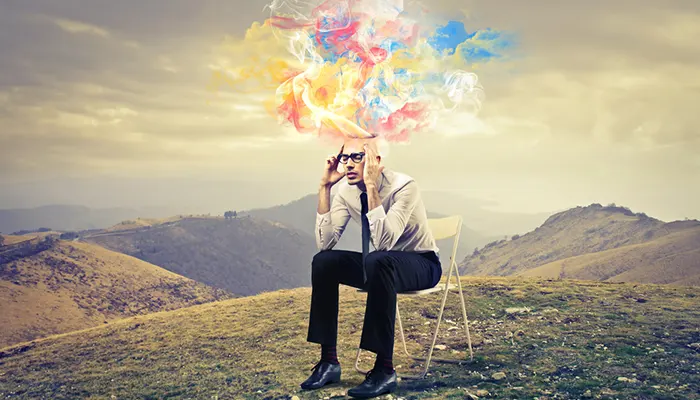Science of Deja vu: What causes the sensation of experiencing something familiar that hasn't happened before?
This article explores déjà vu from a scientific perspective, exploring causes, psychological theories, and neurological explanations
- shriparna
- 29 May, 2025
- 2 mins ago

Science of Deja vu: What causes the sensation of experiencing something familiar that hasn't happened before?
This article explores déjà vu from a scientific perspective, exploring causes, psychological theories, and neurological explanations
For centuries, déjà vu has remained one of the phenomena that have captured the imagination of scientists, psychologists, and laypeople. It describes an experience whereby one feels he or she has already seen the current situation or a particular moment in their lives, while in essence the situation is new.
The Déjà Vu Phenomenon
It is an extremely common experience, and research approximates that it has occurred at least once in the lives of 60-80% of people. Déjà vu oftentimes happens suddenly, completely unexpected, and lasts for a few seconds. Though fleeting, the sensation is extremely disorienting and can leave people in a dilemma regarding whether they hold a skewed perception of reality.
Psychological Theories
Several psychological theories attempt to explain the occurrence of déjà vu. One of the more prominent theories involves the "Dual Processing" hypothesis—a theory suggesting that two cognitive processes normally in concert, familiarity and recollection, fall out of sync when déjà vu is experienced. For instance, a person might sense familiarity without the specific memory that should accompany it.
Another theory is the "Cryptomnesia" hypothesis, which suggests that déjà vu is a result of the re-surfacing of a forgotten memory. The trigger for this memory may come from some subtle cue in the environment, such as a smell, sound, or even a visual element that creates a feeling of familiarity. In this case, the brain misattributes the old memory to the new experience.

Neurological Explanations
Neurologically, déjà vu has been associated with the temporal lobe of the brain, particularly the hippocampus, responsible for significant activities relating to the formation and retrieval of memory. Some researchers have postulated that the illusion of déjà vu occurs from a temporary glitch in the neural processes responsible for memory.
One such theory is that déjà vu might appear when there is a brief overlap between the brain's short-and long-term memory systems. The apparent overlap would trick one into perceiving a new experience as a recollected memory event. In line with this, stimulation of the temporal lobe by electric impulses has been reportedly successful in eliciting déjà vu effects in some epilepsy patients during treatment.
Attention and Perception in Déjà Vu
Attention and perception have much to do with the emergence of déjà vu. Indeed, some researchers argue that this phenomenon takes place in cases of momentary lapse in attention. During that very short lapse of time, the brain may not properly work through an initial exposure to a stimulus. Upon regaining attention, that second exposure to the same stimulus appears strangely familiar because the brain is, in essence, "catching up" on the missed information.
This theory relates to the "Hologram Theory," which explains that the brain stores memories in fragments. Therefore, when an individual experiences a situation that includes familiar aspects from previous experiences, one would believe that they have lived through the whole scenario before because the brain rapidly assembles the fragments.
Clinical Insights and Implications
Although déjà vu is generally considered to be a benign phenomenon, it has been linked to various neurological disorders. For instance, patients with temporal lobe epilepsy often report the feeling of deja vu right before an attack. Thus, this association has offered a clue to the regions and mechanisms in the brain underlying deja vu and epilepsy.
It is also observed more in those having some kinds of psychiatric conditions, such as in anxiety and dissociative disorders. Knowledge of the interrelationship among déjà vu and such disorders might help clinicians refine diagnostic instruments and treatment strategies.
With researchers delving deep into the mysteries of the brain, this enigma of déjà vu adds to the reminder of great unknown territories within the mind where sometimes the familiar and the unknown get intertwined in a very unexpected way.










